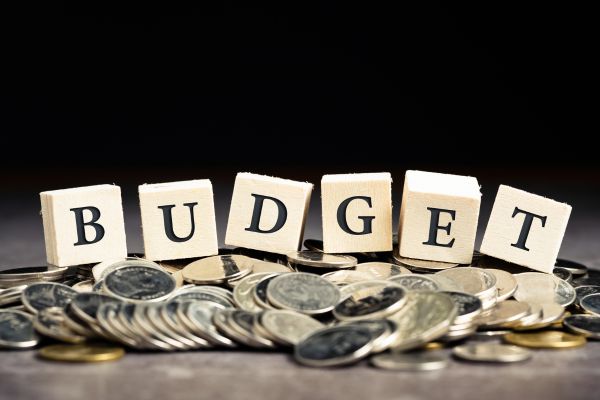Planning a wedding is one of the most exciting journeys a couple can embark on, but it often comes with a hefty dose of financial stress. Amidst the joy and anticipation, questions about costs quickly surface—how much should you spend, and more importantly, where does all that money go? Understanding the wedding budget breakdown is essential to making informed decisions, staying on track, and creating the wedding of your dreams without financial regrets.
Why Understanding a Wedding Budget Breakdown Matters
Many couples begin their planning with a general figure in mind, perhaps influenced by average national statistics or anecdotal advice from friends and family. However, this figure remains vague until it is broken down into specific categories. A clear wedding budget breakdown not only brings clarity but also ensures every dollar is allocated with intention. Without a structured plan, it’s easy to overspend in some areas and come up short in others, potentially leading to compromises that can affect the overall experience.
Moreover, understanding where your money goes enables better negotiations with vendors, helps prioritize must-have elements, and supports your financial goals beyond the wedding day. Whether your wedding is an intimate backyard affair or a grand ballroom celebration, a detailed breakdown empowers you to navigate costs with confidence.
The Venue: Your Biggest Investment
Among all wedding expenses, the venue typically consumes the largest portion of the budget. From rental fees to catering minimums, venues often represent the backbone of your event. This is because they set the stage for the entire experience, influencing everything from guest capacity to décor style and logistics. Some venues offer all-inclusive packages, which might seem more expensive at first glance but can actually save money by bundling services like catering, rentals, and coordination.
The location and time of year also impact venue costs. A popular venue during peak wedding season will inevitably cost more than an off-season or weekday option. While this category often feels overwhelming, investing in the right venue can eliminate the need for excessive decorations or complicated logistics, making it a worthy expense.
Catering and Beverages: Feeding the Celebration
Following closely behind the venue, food and beverages typically consume a significant portion of the wedding budget. Guests remember how they were treated—and that includes the quality and quantity of what they’re served. Depending on your preferences, catering might include a full-course plated dinner, a buffet, or a more casual food truck setup.
Alcohol is another considerable expense, particularly if you plan to host an open bar. Some venues require you to use their in-house catering and beverage services, while others allow outside vendors, which can provide more flexibility in pricing. Carefully considering your guest count, meal style, and drink offerings will help you manage this part of the budget without sacrificing hospitality.
Photography and Videography: Capturing the Memories
Memories fade, but wedding photos and videos last forever. That’s why photography and videography deserve a respected place in your wedding budget breakdown. High-quality professionals don’t just bring expensive equipment—they bring experience, creativity, and the ability to capture moments in a way that tells your unique story.
Although it may be tempting to cut costs in this area, doing so can lead to regret. Hiring a professional ensures that your once-in-a-lifetime day is documented beautifully and reliably. Additionally, many couples choose to prioritize photography over videography or vice versa, depending on their preferences and budget limitations.
Attire and Beauty: Dressing for the Occasion
Every couple deserves to feel their best on their wedding day. Wedding attire—such as the bride’s gown, groom’s suit, and outfits for any bridal party members—plays a significant role in both budget and overall experience. The costs can vary dramatically depending on designer labels, custom fittings, or even rentals.
Don’t forget the additional expenses tied to attire, such as shoes, accessories, alterations, and professional hair and makeup services. These elements contribute not only to your appearance but also to your confidence and comfort throughout the day. Including these costs in your wedding budget breakdown ensures that you allocate sufficient funds for the look and feel you envision.
Entertainment: Setting the Mood
The entertainment at your wedding creates the atmosphere and keeps the energy flowing. Whether you hire a live band, a DJ, or create your own playlist, this is one area where budget choices can significantly influence the tone of the event. A professional entertainer does more than play music—they read the crowd, keep the timeline moving, and ensure everyone stays engaged.
Lighting, sound equipment, and special effects are also common additions to entertainment expenses. By incorporating these into your wedding budget breakdown early on, you avoid surprises and ensure your guests are talking about the fun they had for years to come.
Flowers and Décor: Enhancing the Aesthetic
While often viewed as a luxury, flowers and décor add emotional depth and aesthetic beauty to your celebration. From the bridal bouquet to table centerpieces, florals help bring your vision to life. Décor can also include items like linens, signage, candles, and rentals such as arches or furniture.
This category is particularly flexible and can be adjusted based on your priorities. Couples with artistic flair may choose to DIY many elements, while others may rely on professional designers. Either way, having a realistic budget for this area helps you create the ambiance you desire without overspending.
Stationery and Invitations: Setting the Tone
Your invitations are the first glimpse guests have into your wedding, and they set the tone for what’s to come. The cost of stationery includes save-the-dates, formal invitations, RSVP cards, thank-you notes, menus, and sometimes signage for the day itself. Digital options are growing in popularity and can be a cost-saving alternative to traditional printing.
While often overlooked, postage and design fees can quickly add up. Factoring this into your wedding budget breakdown ensures your communications are timely, polished, and reflective of your theme.
Transportation and Accommodation: Moving Guests in Style
Depending on the location and logistics of your wedding, transportation may play a critical role. From shuttles for guests to a getaway car for the newlyweds, these costs should not be underestimated. Additionally, couples often contribute to lodging expenses for out-of-town guests or book hotel blocks to secure group rates.
If your venue is in a remote location, transportation might be necessary to ensure guests arrive safely and on time. Accounting for this in your wedding budget helps avoid last-minute scrambling and demonstrates thoughtful hospitality.
Miscellaneous Expenses: Planning for the Unexpected
Every wedding has unplanned expenses. These may include permits, vendor tips, insurance, or last-minute purchases. One of the most valuable components of a comprehensive wedding budget breakdown is a contingency fund—money reserved specifically for unexpected costs.
Having this buffer built into your budget adds peace of mind and allows you to handle surprises without derailing your financial plan. Whether it’s a wardrobe emergency or a sudden rain plan, your budget should be flexible enough to adapt.
Bringing It All Together: A Thoughtful Financial Blueprint
Your wedding is a deeply personal milestone, and your budget should reflect your values, priorities, and unique love story. A detailed wedding budget breakdown serves as a roadmap, guiding every financial decision with clarity and purpose. Rather than being restrictive, it opens the door to creativity, balance, and smarter choices.
By understanding where your money goes and planning accordingly, you can create a meaningful and unforgettable experience without the stress of financial overreach. In the end, the goal isn’t just to have a beautiful wedding—it’s to start your married life on solid financial footing. And that, more than anything, is worth celebrating.







